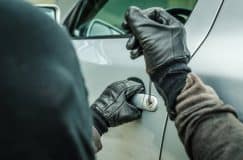Used Car Buying Tips
Buying a used car can be stressful since car buying is a little tricky. Too many people buy a used car then realize that the price was too good to be true. However, a little bit of wisdom goes a long way. Here are a bunch of great used car buying tips, guidelines, and bits of knowledge that’ll help buy a used car at a fair price without headaches and without worrying about inheriting other problems.
Figure Out Your Budget
You need to know how much you’re willing to spend in order to get the car you want without jeopardizing your finances. If you decide to take out a loan or a lease, make sure that the monthly payments don’t exceed 20% of your monthly income. If you are thinking of buying a car with an expired warranty, be sure your have extra money in your savings to cover any potential repairs down the line.
Pick Your Favorites and Do Your Research
Look around websites for cars you would like and speak with friends or family members for their recommendations. Think about what your needs are and if there any particular features you would like for your used car. When you see some makes and models you like, look up reviews on car websites such as Edmunds.com to see if there are any warnings or issues you should be aware of. You’ll want get a shortlist of 3 to 5 different makes and models in your price range in order to get a better variety of options in your area.
Search Locally Online or In-Person
The Internet makes it easy to search for classifieds on used cars. You can even see which local dealerships have any of the used cars you want in their lot. If not, there is always the old fashioned method of walking onto a used car dealership lot to browse around. No matter which method you choose, it is recommended that you buy from a reputable dealership that has certified pre-owned vehicles on their lot. This makes them easier to contact if you end up having a problem with your newly acquired vehicle.
Found a Car? Check Its Price and Its History
If you found one of the cars on your list, look at the price tag and then do some further research. Use the Kelley Blue Book to see the actual worth of the car versus the asking price listed on the tag. Ask the dealer for a vehicle history report or get the VIN of the car and use Carfax or AutoCheck to get the vehicle’s complete repair history. Once you know the car’s worth and its history of repairs, it’s time to proceed with the sale or move on to the next possible vehicle depending on what you have found.
Call the Seller
Before heading out to buy the car, establish a rapport by calling the seller. This allows you to ask some questions before committing to dropping by for a visit. While you have the seller on the phone, ask him/her important questions like:
- Do you own the title to the vehicle?
- Is the title cleared of liens?
- How did you set the asking price?
- Are you the first owner of the car?
- Are the service records available?
- Is there any other information about the car what wasn’t in the ad?
- Do you mind if I have an independent mechanic inspect the car?
If you like the seller’s replies, pay them a visit.
Test Drive The Vehicle
If you’re going to be driving this car often, it’s important that you feel comfortable driving it before you commit to purchasing it. Do the following tests when you take a car out of a quick drive:
- Listen to how the engine runs and how hard it vibrates the car
- Make note of any noises or vibrations you feel that seem out of place
- Examine any blind spots and make sure you can adjust your mirrors
- Test the comfort of the drivers seat
- See how comfortably and quickly you can reach the controls
- Test how the steering feels
- Test how long it takes the car to accelerate
- Test the heating, air conditioning, radio, music player, and all other perks
- See if the car can connect to your Bluetooth devices
Don’t ever buy a car that you haven’t tested out first. If you are satisfied, it’s time to seal the deal.
Haggling and Negotiations
Usually used cars are sold for higher prices than they are actually worth in order for the dealership to make the most profit possible. Yet since you did your homework by researching the car’s value and history, you can make a wise counter offer. If you notice any worn out parts or other items in need of replacement, this can also help you negotiate a lower cost since you’ll have to pay for proper repairs. Many times you can ask a trusted mechanic to do a quick inspection to point out any problems before you buy. When you agree on a price, try to factor in any additional fees that are being tacked on such as document fees, registration fees, sales tax, and the cost of transferring the title over to you.
Thanks to the research you’ve done, you’ll know what you should pay and know what sounds unreasonable. Be assertive and feel free to walk away if you think the sales staff mistreated you or you think that negotiations are getting sour. Life is too short to waste your time compromising for a bad deal. Don’t feel like you’re missing out if you walk away. You can usually find someone else that will accept your offer, if it is reasonable.
Make Your Purchase
Hands are shaken, contracts are drawn up, and now you’re buying a great used car. However, it’s not over yet. Most dealerships will offer various other services in order to tack on more costs. Carefully look at the contract and ask the dealership to remove any fees or features that the finance manager cannot fully explain. While a good chunk of these fees are bogus, there are a few offers such as an extended warranty could be helpful if it is worth cost. Once everything is agreeable, sign the contract, pay your money, and enjoy your quality used car.
If you have gotten a used car, you may want to rethink your insurance policy. Cost-U-Less can provide affordable, quality insurance rates from a wide range of insurance providers. Request a free car insurance quote online today.



